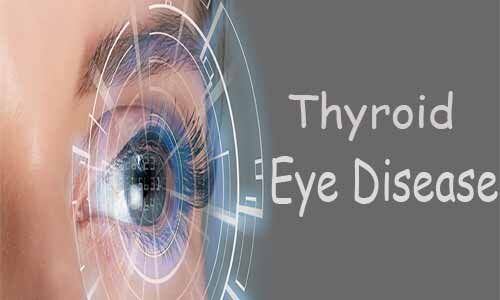- Home
- Medical news & Guidelines
- Anesthesiology
- Cardiology and CTVS
- Critical Care
- Dentistry
- Dermatology
- Diabetes and Endocrinology
- ENT
- Gastroenterology
- Medicine
- Nephrology
- Neurology
- Obstretics-Gynaecology
- Oncology
- Ophthalmology
- Orthopaedics
- Pediatrics-Neonatology
- Psychiatry
- Pulmonology
- Radiology
- Surgery
- Urology
- Laboratory Medicine
- Diet
- Nursing
- Paramedical
- Physiotherapy
- Health news
- Fact Check
- Bone Health Fact Check
- Brain Health Fact Check
- Cancer Related Fact Check
- Child Care Fact Check
- Dental and oral health fact check
- Diabetes and metabolic health fact check
- Diet and Nutrition Fact Check
- Eye and ENT Care Fact Check
- Fitness fact check
- Gut health fact check
- Heart health fact check
- Kidney health fact check
- Medical education fact check
- Men's health fact check
- Respiratory fact check
- Skin and hair care fact check
- Vaccine and Immunization fact check
- Women's health fact check
- AYUSH
- State News
- Andaman and Nicobar Islands
- Andhra Pradesh
- Arunachal Pradesh
- Assam
- Bihar
- Chandigarh
- Chattisgarh
- Dadra and Nagar Haveli
- Daman and Diu
- Delhi
- Goa
- Gujarat
- Haryana
- Himachal Pradesh
- Jammu & Kashmir
- Jharkhand
- Karnataka
- Kerala
- Ladakh
- Lakshadweep
- Madhya Pradesh
- Maharashtra
- Manipur
- Meghalaya
- Mizoram
- Nagaland
- Odisha
- Puducherry
- Punjab
- Rajasthan
- Sikkim
- Tamil Nadu
- Telangana
- Tripura
- Uttar Pradesh
- Uttrakhand
- West Bengal
- Medical Education
- Industry
Moderate to severe Thyroid eye disease associated with increasing severity of proptosis/diplopia

Thyroid eye disease (TED) is an inflammatory autoimmune condition most often presenting with Graves disease. Those at risk for more severe disease include male individuals, those older than 65 years, tobacco users, and those with a high level of thyroid autoantibodies.
TED begins with orbital and periocular inflammation typically followed by a less active but still symptomatic chronic disease course. Active TED, defined by a clinical activity score (CAS), includes orbital/periocular pain, swelling, and redness with proptosis and diplopia present in more severe disease. Increasing levels of proptosis and diplopia are associated with worsening QoL. These manifestations may prevent carrying out daily tasks such as driving and reading and have been associated with substantial psychosocial distress, most notably anxiety and depression from changes in appearance and visual function.
Health state utilities are cardinal values that reflect an individual’s preference for different health outcomes, such as trading off a shorter period of time in perfect health vs a longer time with a disease that reduces QoL. Utility values play an important role in cost-effectiveness analyses as well as health technology appraisals. The primary objective of this study by Terry J. Smith was to elicit utility values for health states associated with moderate severe active TED of varying severities. These were assessed by magnitude of proptosis and diplopia (separately and combined), to demonstrate QoL burden associated with TED and allow for future assessment of QoL gains with treatments.
This qualitative study, conducted from April 20, 2020, to April 29, 2021, assessed health states for active, moderate-severe TED, and values were elicited using time trade-off methods. Six health states of varying severity were determined from 2 placebo-controlled clinical trials (171 patients with TED and clinical activity score 4, ±diplopia/proptosis) and refined using interviews with US patients with TED (n = 6). Each health state description was validated by interviews with additional TED patient advocates (n = 3) and physician experts (n = 3). Health state descriptions and a QOL questionnaire were piloted and administered to a general population. Visual analog scales (VASs) were also administered to detect concurrence of the findings.
A total of 111 participants completed time trade-off interviews. The mean (SD) utility value was 0.44 (0.34). The lowest (worse) mean utility value was observed in the most severe disease state (constant diplopia/large proptosis) with 0.30, followed by constant diplopia/small proptosis, intermittent or inconstant diplopia/large proptosis, no diplopia/large proptosis, and intermittent or inconstant diplopia/small proptosis. The highest (best) mean value, 0.60 (95% CI, 0.54-0.67), was observed for the least severe disease state (no diplopia/small proptosis).
Results of this qualitative study suggest that patients with moderate-severe, active TED may have substantial disutility. The association of TED with negative QoL has been well documented; however, using the unbiased TTO method in a general US population to assess this association (health score utility scoring) is novel. The results suggest that utility values decrease with increasing severity of TED symptoms as is reflected by the presence of diplopia and/or proptosis in 6 different health states. Substantial differences were found between nonneighboring health states and in certain subpopulations. These very low utility values suggest the substantial QoL burden potentially confronting patients with TED and highlight the need for additional studies in this area. These data might now serve as baseline for prospectively assessing improvements (utility gains) with therapies.
Source: Terry J. Smith, MD; Kimberly Cockerham, MD; Gary Lelli, M; JAMA Ophthalmol. doi:10.1001/jamaophthalmol.2022.3225
Dr Ishan Kataria has done his MBBS from Medical College Bijapur and MS in Ophthalmology from Dr Vasant Rao Pawar Medical College, Nasik. Post completing MD, he pursuid Anterior Segment Fellowship from Sankara Eye Hospital and worked as a competent phaco and anterior segment consultant surgeon in a trust hospital in Bathinda for 2 years.He is currently pursuing Fellowship in Vitreo-Retina at Dr Sohan Singh Eye hospital Amritsar and is actively involved in various research activities under the guidance of the faculty.
Dr Kamal Kant Kohli-MBBS, DTCD- a chest specialist with more than 30 years of practice and a flair for writing clinical articles, Dr Kamal Kant Kohli joined Medical Dialogues as a Chief Editor of Medical News. Besides writing articles, as an editor, he proofreads and verifies all the medical content published on Medical Dialogues including those coming from journals, studies,medical conferences,guidelines etc. Email: drkohli@medicaldialogues.in. Contact no. 011-43720751


